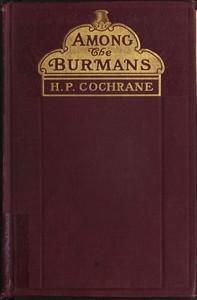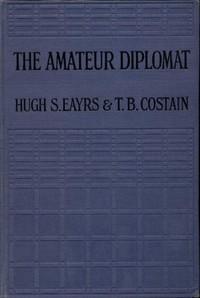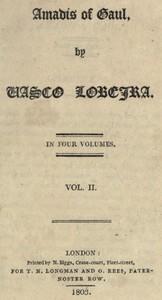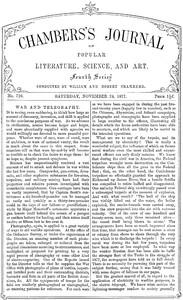Read this ebook for free! No credit card needed, absolutely nothing to pay.
Words: 48798 in 11 pages
This is an ebook sharing website. You can read the uploaded ebooks for free here. No credit cards needed, nothing to pay. If you want to own a digital copy of the ebook, or want to read offline with your favorite ebook-reader, then you can choose to buy and download the ebook.


: Among the Burmans: A Record of Fifteen Years of Work and its Fruitage by Cochrane Henry Park - Burma Social life and customs
who had been guilty of many sacrilegious acts, destroying pagodas and other sacred objects in search of plunder, could hope for no mercy at the hands of his captors. The leading Portuguese were slaughtered. The remainder, including the women, were carried away captive to Ava as slaves. Their descendants may now be found throughout Burma, many of them being Roman Catholic priests. In 1634 Ava was made the permanent capital.
An immense pagoda was built, and a costly image of Gautama cast to add to the sacredness of the place, and to the merit of the king.
But Burman fortunes were uncertain. Ava the Great was taken and burned by the Talaings in 1752. Not long were the Talaings allowed to hold the Burman capital. A Burman who took the name of Alaungpra, with wonderful vigour and ability rallied his people. Little more than a year had passed when Alaungpra recaptured Ava. In 1755 he took his armies southward, conquering as he went, not content until he reached Dagon. There he founded a new city, which he designed should be the chief port of Burma, and named it Rangon , the word meaning the war ended.
Now, in 1755, both British and French traders were established there. During the struggles between the Burmans and Talaings, the Europeans hardly knew which should have their favour and help. Everything depended on being on the side which should prove victorious.
Alaungpra, after securing Rangoon, returned to Ava. This was interpreted as a sign of weakness, and thereafter the Europeans openly showed their sympathy with the Talaings. When the Talaings attacked the Burmese, they were assisted by the ships of both British and French.
But alas, Alaungpra returned early in the following year. After a blockade of several months Syriam was taken and destroyed, including the European factories. The principal Europeans, after being held a short time as prisoners, were put to death. The downfall of Pegu soon followed, marking the end of Talaing supremacy.
Six years later, 1762, Sagaing became the capital of the Burmese Empire. Passing over the wars with Siam, Manipur, and China, we find the capital changed, in 1783, to Amarapura, a new city built for the purpose. The following year Arracan was invaded and conquered. The most valued booty was an immense brass image of Gautama, cast in the second century, said to possess miraculous powers. This image, taken over the mountains, a wonderful feat, was placed in a building erected for the purpose, on the north side of Amarapura, the new capital, where it may now be seen by visitors to the "Arracan Pagoda."
In 1795 the first envoy to the king of Burma was sent by the government of India. The envoy was not well received, and secured no permanent advantage. The following year another was deputed to be resident at Rangoon, instead of Ava. He met with the same discourteous treatment, and accomplished nothing. Up to 1812 five successive attempts were made to arrive at an understanding with the Burman king, with reference to political and commercial relations, but without success. Envoys were either ignored or made the bearers of insolent replies. At this time war between England and the United States was about to begin. Adoniram Judson was getting ready to sail as a foreign missionary.
In 1823 the capital was restored to Ava. A great fire at Amarapura destroying some of the royal buildings, together with certain "bad signs," induced the king to abandon the city which had been in existence only forty years. During the previous year the Burmans had overrun Manipur and parts of Assam, and claimed the territory as a part of the Burman Empire. The first battle ever fought between the Burmese and English was at Cachar--in January, 1824. The Burmans were defeated. In 1824-5 the British and native troops succeeded in driving the Burmans back into their own country. The bulk of the Burmese army had already been recalled to repel the British who were advancing from the south, war having been formerly declared in March, 1824. In the meantime the American missionaries, Judson and Price, together with all Europeans at Ava were imprisoned as suspected spies, or in league with the enemy.
After eleven months they were transferred to Aungbinle, with the intention to put them to death. The first Burmese war lasted two years.
Arracan, and all the country east of the Gulf of Martaban was ceded to the British. Rangoon reverted to the Burmese. But the most interesting result to American readers, was the release of the missionaries, Judson and Price, who were utilized as messengers to negotiate the terms of surrender. After the second installment of indemnity had been paid, and the British troops withdrawn to territory ceded by the humiliated king the following record of the affair was added to the royal chronicles. "In the years 1186, 1187 the white strangers of the west fastened a quarrel upon the Lord of the Golden Palace.
"They landed at Rangoon, took that place and Prome, and were permitted to advance as far as Yandabu, for the king, from motives of piety and regard to life, made no preparation whatever to oppose them. The strangers had spent vast sums of money in their enterprise, so that by the time they reached Yandabu their resources were exhausted, and they were in great distress. They then petitioned the king, who, in his clemency and generosity, sent them large sums of money to pay their expenses back, and ordered them out of the country." The record modestly omitted to mention the fact that the strangers had permission to take with them the Arracan, Ye, Tavoy, Mergui, and Tenasserim provinces!
Free books android app tbrJar TBR JAR Read Free books online gutenberg
More posts by @FreeBooks

: Venoms: Venomous Animals and Antivenomous Serum-therapeutics by Calmette A Albert Austen E E Ernest Edward Translator - Toxins; Antitoxins; Venom; Poisonous snakes


: The Amateur Diplomat: A Novel by Costain Thomas B Thomas Bertram Eayrs Hugh S Hugh Sterling - World War 1914-1918 Fiction; Princesses Fiction; Imaginary places Europe Eastern Fiction; Canadians Foreign countries Fiction






